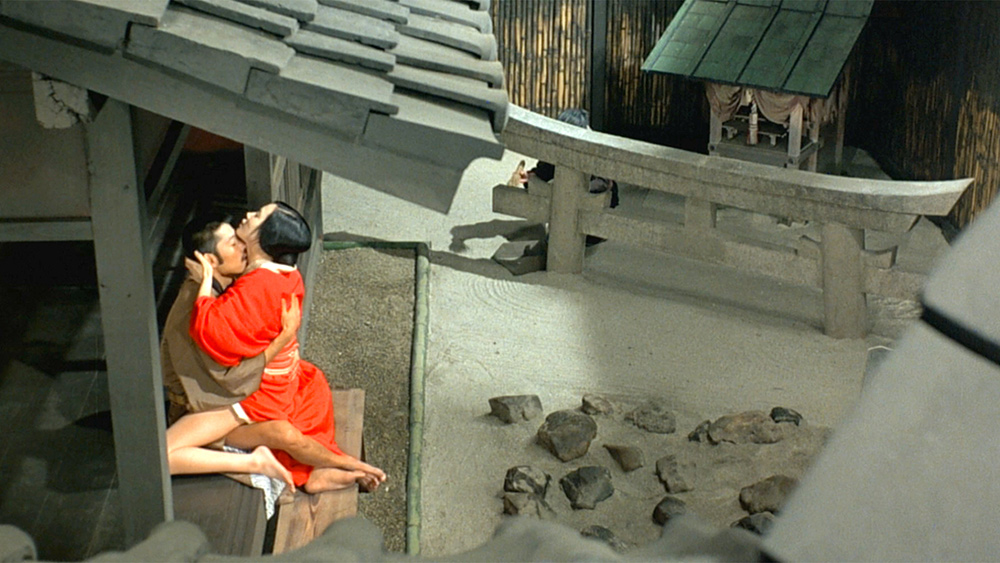![Realizing large-scale screening of “Merry Christmas Mr. Lawrence” (4K restored version) and “Corrida of Love” (restored version) Interview with director Arata Oshima of Nagisa Oshima Production [CINEMORE ACADEMY Vol.16]](https://cinemore.jp/images/7bd9e6ecd7d195ca5f08d081107ec195f93313a3679da957fa577b6defbf0706.jpg)
Realizing large-scale screening of “Merry Christmas Mr. Lawrence” (4K restored version) and “Corrida of Love” (restored version) Interview with director Arata Oshima of Nagisa Oshima Production [CINEMORE ACADEMY Vol.16]
Friendship with Koji Wakamatsu, the master of pink cinema
Q: Director Nagisa Oshima seems to think that ``movie'' is an expression that includes the impact it has on society and the style of production. I think ``Ai no Corrida'' is the best example of this.
Oshima: I really think so. Nagisa Oshima left Shochiku in 1960 and later started a company called Sosousha with allies including actors and screenwriters. In the 1960s, I often made two or more films a year, but I think I hit a dead end before I turned 40.
``Ritual'' was released in 1971, followed by `` Summer Sister '' (1972). At this time, my father was 40 years old. Since ``Gangbang'' (1968) had started to receive acclaim overseas, I think he was thinking about making a film on a different stage than before. At that time, I met Anatole Dorman, a big French producer. I made ``Ai no Corrida'' with him. From there, I transitioned to creating works with overseas filmmakers.
Q: For ``Ai no Corrida,'' we brought in Koji Wakamatsu, who was known for his work on pink movies at the time, as the producer, and asked Yoichi Choi, who worked under Mr. Wakamatsu, to be the chief assistant director. I think they placed a lot of importance on the production of the film, including the arrangement of staff.
Oshima: I think so. Before ``Ai no Corrida,'' I had made films with sexual themes, but they were not what you would call ``pornography.'' That's probably why he wanted to work with Wakamatsu-san.
It seems that he and Wakamatsu often met at bars and bars in Shinjuku. The staff members of Wakamatsu-gumi and Oshima-gumi sometimes fight, but the two generals don't. It seems like it was like that. Mr. Wakamatsu also respected his older father very much, and he seemed to like his father very much, calling him ``Waka-chan, Waka-chan.''
Q: Mr. Wakamatsu passed away in October 2012, and Mr. Oshima passed away in January 2013, just three months apart.
Oshima: That's right. At my father's funeral, my mother (Akiko Koyama) said in greeting, ``I think he's drinking with Waka-chan in heaven by now.''

“Corrida of Love” (Restored version) ©Oshima Nagisa Productions
Shigemasa Toda, who supported the visuals of Oshima's works
Q: The sets designed by art director Shigemasa Toda are also a highlight.
Oshima: That red image is amazing. I think Mr. Toda's sense and talent are truly exploding. Mr. Toda was a truly special person to my father. I think the relationship was more than just a typical film director and art director. The trust and respect shown to Mr. Toda was amazing.
Ryuichi Sakamoto said something to the effect of, ``Almost every film director in the world is a painter, but Nagisa Oshima can't draw. That's why she stood out.'' It makes sense.
I don't think my father lacked an aesthetic sense, but he clearly communicated the ideas behind his works and left it to Mr. Toda to embody them. I feel like it was that kind of partnership.

